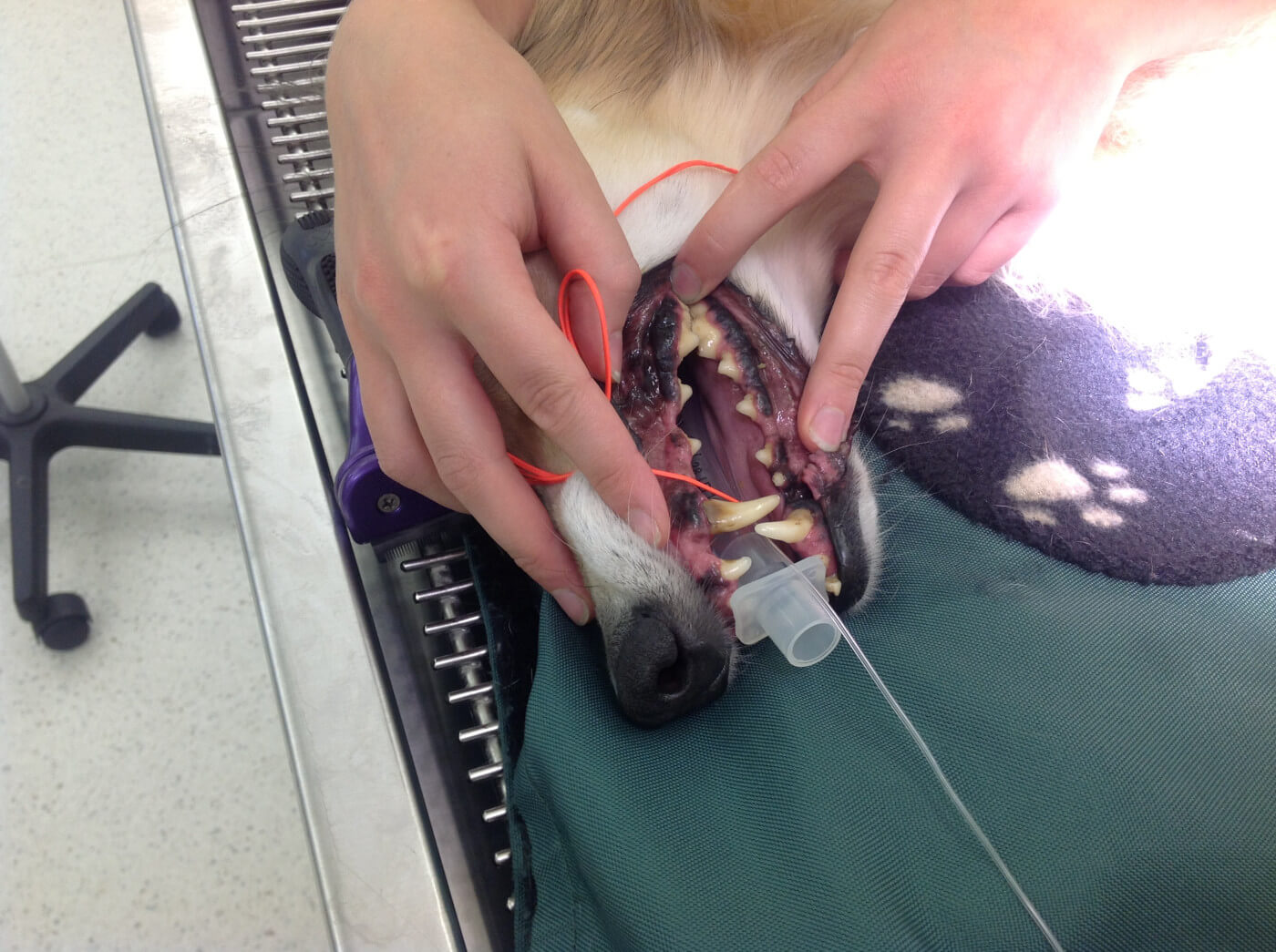
Healthy teeth and gums in dogs
January 25th 2023
Adrian Caunter, the Clinical Director and veterinary surgeon at Vet’s Klinic (our in-house veterinary practice), describes the signs and dangers of gum disease and explains how looking after your dog’s teeth and gums can play a significant role in their long-term health and well-being.
Dental disease is the most common condition affecting adult dogs but you’ll be pleased to know it is entirely preventable. Despite this however, 90 per cent of dogs over the age of three are still affected. Factor in that it is a progressive inflammatory disease and it’s no wonder so many dogs end up with bad mouths. Unfortunately, other than bad breath, there are very little signs to indicate a problem, and intervention can come too late to prevent extensive treatment or save teeth.
What Does Gum Disease Do?
Gum disease is usually silent. There are very few outward signs or symptoms and once advanced this disease can devastate a dogs mouth, causing chronic pain, eroded gums, missing teeth and bone loss.
Why Does it Happen?
Dental disease starts as a result of eating: bacteria, food and saliva combine to form a sticky surface coating on the teeth known as plaque. This plaque is then hardened over time by saliva to form the tartar we can see. The real problems however, arise when the plaque layer starts to spread under the gum line. The immune system starts to respond to these bacteria, producing inflammatory substances that also damage the surrounding tissues that support the teeth such as the gum and bone. Bacteria can also enter the blood stream and this has been seen to cause changes in the heart, liver and kidneys.

What are the Signs and Symptoms?
Signs are generally noticed when the disease is at its advanced stages or more subtle signs may only be detected through veterinary inspection. Sign that may occur during gum disease include the following:
· Bleeding or red gums, especially around the margins of the teeth
· Bad breath
· Signs of discomfort such as problems picking up food, chewing on one side of the mouth, making noises when eating, gnawing or yawning or not wanting the head to be touched
· Wobbly teeth
· Blood in drinking water, on chew toys or in the saliva
· Bumps around the jaw or face
· Sneezing or discharge from the nose (very advanced disease leading to spread into and destruction of the bones of the face)
How to Keep Your Dogs Teeth and Gums in Top Condition
Home care can make a massive difference to a dog’s comfort and health. Always check with your vet before starting a program as sometimes a professional clean or extractions are required first!
There are a number of options available, but anything you can do will have rewards. Consistency is vital though, as occasional effort is not likely to be of any long-term benefit. Here are a few tips to help you:
· Brushing
This is the most effective method; the plaque layer is easily disrupted by brushing. Daily brushing is recommended and most dogs will eventually accept this. Be patient and slowly build up the process starting with the outside of the teeth under the upper lip. You can use a toothbrush, finger brush or dental wipe but always use a product designed for dogs, this is also important for the toothpaste as there are ingredients in human toothpastes that are not suitable for dogs to swallow.
· Chlorhexidene Rinse or Gel (an effective anti-plaque antiseptic)
It can be bitter though some are flavoured to help. This can be applied directly or some go into the drinking water, ask your vet for details.
· Diets and Chews
Some diets use a special type of kibble or have specific additives to help prevent dental disease. Dental chews can be beneficial, but calories need to be remembered. Bones can be very effective, but care should be taken as fractured teeth or damaged gums can occur and swallowed bones can sometimes be life threatening.
· Dental powders
Dental powders may contain ingredients to help freshen breath, but more importantly seaweed as a source of polysaccharides. Polysaccharides have been shown to inhibit plaque and tartar formation.
Main Photo by Gourav Phulwaria on Unsplash

 Shop Dog
Shop Dog
 Shop Cat
Shop Cat
 Vet Know-how
Vet Know-how Pet Clubs
Pet Clubs Contact
Contact


